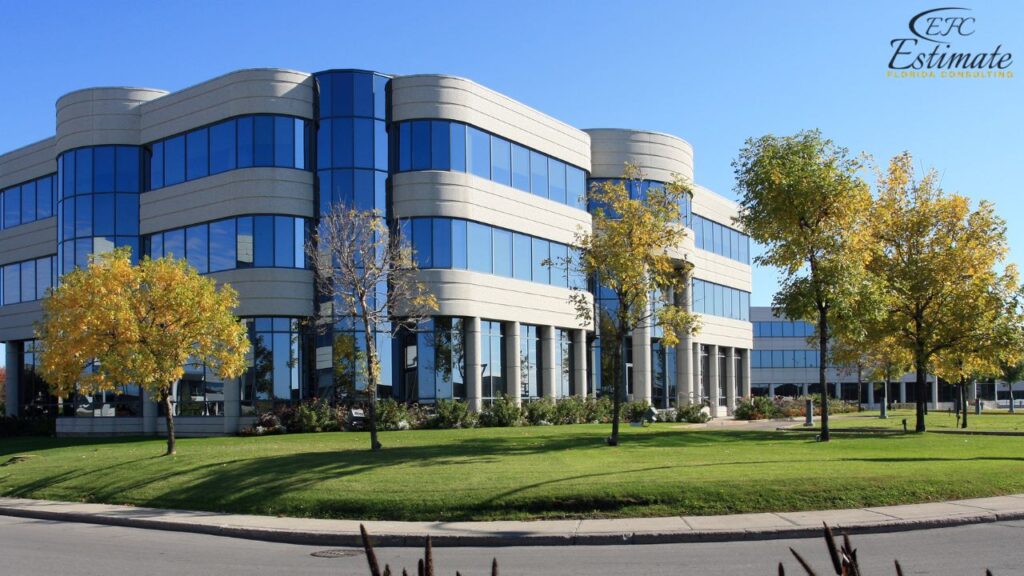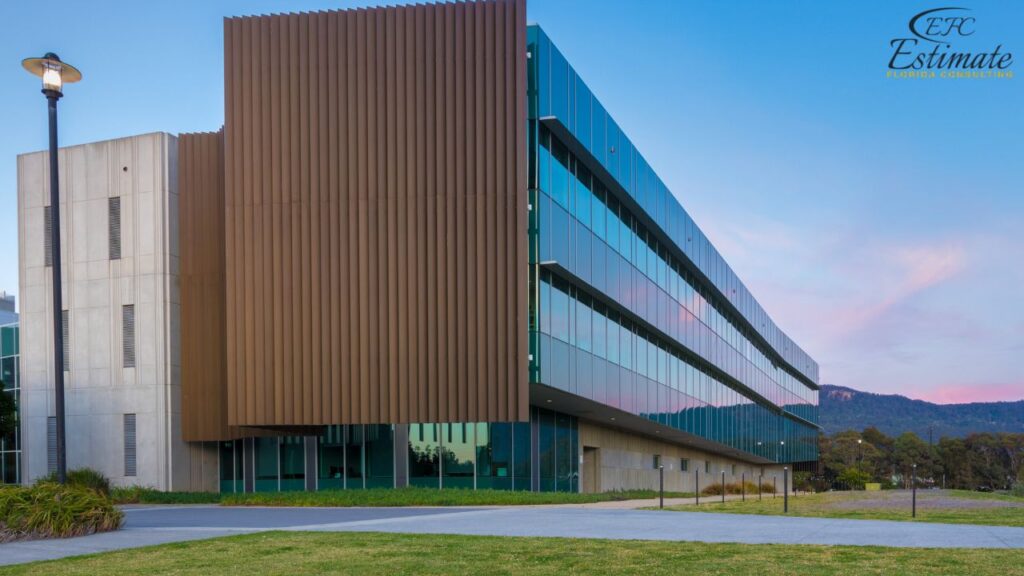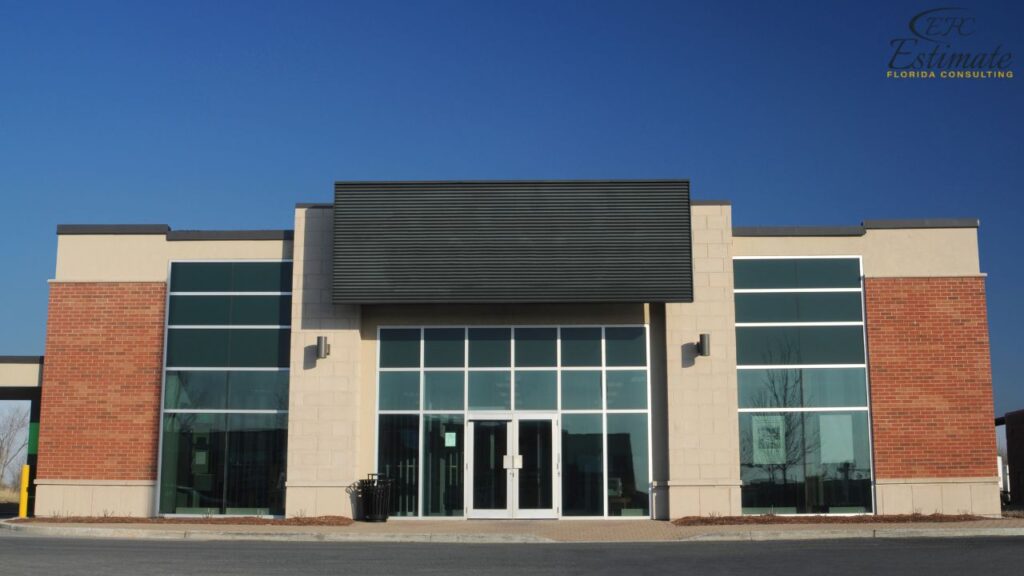Commercial Building Construction Cost
Estimate for a Small Business
Constructing a commercial building for a small business is a significant investment that requires careful planning and budgeting. The costs involved can vary greatly based on factors such as location, building type, materials, labor, and additional features. This guide provides a comprehensive breakdown of the costs associated with constructing a commercial building, helping small business owners make informed decisions and develop effective financial plans. By understanding these costs and the elements that influence them, business owners can ensure their project is completed on time and within budget, paving the way for successful operations.

Factors Influencing the Cost
Several factors can influence the overall cost of exterior house painting. Understanding these factors will help you budget accurately and make informed decisions about your painting project.
Location
The location of the commercial building plays a crucial role in determining construction costs. Urban areas typically have higher costs due to demand, labor rates, and materials. Conversely, rural locations may offer lower costs but could result in increased transportation expenses for materials and labor. Local zoning laws and building codes can also impact the overall cost of construction. Areas with strict regulations may require additional time and resources to meet compliance, adding to project expenses. Evaluating potential sites carefully can help you understand the associated costs and logistics of each location.
Building Type
The type of commercial building you choose to construct significantly influences costs. Common types of commercial buildings include:
- Retail Stores: These buildings often require storefronts, signage, and interior layout designed for customer traffic.
- Office Spaces: These may include open floor plans, individual offices, and conference rooms, often requiring specialized features like data cabling and HVAC systems.
- Warehouses: Construction costs can vary based on the height, loading docks, and storage needs.
- Restaurants: These buildings require specialized kitchen equipment and plumbing, impacting the overall cost.
Building Type | Estimated Cost per Sq Ft | Total Cost (for 2,000 Sq Ft) |
$150 – $300 | $300,000 – $600,000 | |
$120 – $250 | $240,000 – $500,000 | |
$80 – $150 | $160,000 – $300,000 | |
Restaurants | $200 – $400 | $400,000 – $800,000 |
Selecting the right building type should consider your business needs, customer expectations, and budget. It’s essential to work with an architect or contractor familiar with commercial construction to ensure your chosen building type aligns with your business goals.
Materials
The choice of materials significantly impacts construction costs and long-term maintenance. High-quality materials can enhance durability and aesthetics, but they come at a higher price. Common materials used in commercial construction include:
- Foundation: Concrete slab or piers, with costs varying based on soil conditions and building requirements.
- Framing: Steel or wood framing, with steel generally being more expensive but offering superior strength.
- Exterior: Options include brick, stucco, or metal siding, each with different cost implications and maintenance needs.
- Roofing: Flat roofs or sloped roofs with various materials such as asphalt, metal, or membrane, which can vary in cost and lifespan.
- Interior Finishes: Flooring, walls, ceilings, and fixtures that influence the overall aesthetic and function of the space.

Material Type | Estimated Cost per Sq Ft | Total Cost (for 2,000 Sq Ft) |
Basic Materials | $80 – $150 | $160,000 – $300,000 |
Mid-Range Materials | $150 – $200 | $300,000 – $400,000 |
High-End Materials | $200 – $300 | $400,000 – $600,000 |
Choosing materials should balance aesthetics, functionality, and budget. Collaborating with a designer can help identify materials that meet your requirements while optimizing costs.
Commercial Construction Videos
Commercial Construction
Factory Construction
Work Shop Construction
Labor Costs
Labor costs are another significant component of construction expenses, influenced by local wage rates and the complexity of the project. Skilled labor is essential to ensure that the building is constructed to code and meets quality standards.
Labor Task | Estimated Cost per Hour | Total Hours Required | Total Cost |
Site Preparation | $50 – $100 | 100 – 200 | $5,000 – $20,000 |
Construction | $60 – $120 | 800 – 1,200 | $48,000 – $144,000 |
Finishing | $50 – $100 | 200 – 400 | $10,000 – $40,000 |
Budgeting for labor costs is essential for ensuring the project stays within financial limits. Additionally, consider potential overtime costs, as delays can lead to increased labor expenses.
Additional Features
Additional features can enhance the functionality and appeal of a commercial building but will add to the overall cost. Features to consider include:
- Landscaping: Enhances the building’s curb appeal and can cost between $5,000 and $15,000.
- Parking Lots: Depending on the size and materials used, costs can range from $4,000 to $20,000.
- HVAC Systems: Essential for comfort in commercial spaces, costing anywhere from $5,000 to $20,000 based on size and efficiency.
- Signage: Depending on design and materials, signage can range from $1,000 to $5,000.

Feature | Estimated Cost |
$5,000 – $15,000 | |
$4,000 – $20,000 | |
$5,000 – $20,000 | |
Signage | $1,000 – $5,000 |
Investing in quality additional features can improve the functionality and attractiveness of your building, positively impacting customer experience and business operations.
Permits and Regulations
Obtaining necessary permits and complying with local regulations are vital for legal and safe construction. Permit costs can vary based on location and the size of the project.
Permit and Compliance Task | Estimated Cost | Total Cost |
Building Permits | $2,000 – $5,000 | $2,000 – $5,000 |
Inspection Fees | $500 – $1,500 | $500 – $1,500 |
Regulatory Compliance | $1,000 – $3,000 | $1,000 – $3,000 |
Failing to obtain proper permits can result in fines, delays, or legal issues. Understanding the specific requirements for your locality is essential for budgeting and compliance.
Additional Considerations
Financing Options
Understanding the various financing options available for your construction project is crucial. You may consider traditional bank loans, Small Business Administration (SBA) loans, or alternative financing options such as private investors. Each option has its pros and cons, and it’s essential to choose the one that aligns with your business goals and financial situation.
Download Template For Commercial Building Project Breakdown
- Materials list updated to the zip code
- Fast delivery
- Data base of general contractors and sub-contractors
- Local estimators

Contingency Budget
It’s wise to set aside a contingency budget of 10% to 20% of the total estimated cost to cover unexpected expenses or changes during construction. This buffer can help you manage any surprises that may arise, such as cost increases in materials or labor.
Project Timeline
Developing a realistic project timeline is critical for managing costs and ensuring timely completion. Factors such as weather, permit approval times, and contractor availability can affect your timeline. Regular communication with your contractor can help keep the project on track and address any potential delays promptly.
Conclusion
Building a commercial space for a small business involves various cost factors, from site selection and design to materials and labor. By understanding these factors and planning accordingly, you can create a realistic budget and ensure your construction project aligns with your business goals. Whether you are constructing a new office, retail store, or restaurant, careful consideration of costs and effective project management will contribute to the successful completion of your building.
FAQs
The main factors that influence construction costs include:
- Location: Urban areas generally have higher costs due to demand and labor rates, while rural locations may offer lower costs but could incur additional transportation expenses.
- Building Type: The type of commercial building (e.g., retail, office, warehouse, restaurant) significantly impacts costs due to varying requirements.
- Materials: The choice of materials (basic, mid-range, or high-end) affects overall costs and long-term maintenance.
- Labor Costs: Local wage rates and project complexity can lead to varying labor costs.
- Additional Features: Landscaping, parking lots, HVAC systems, and signage add to the overall cost.
- Permits and Regulations: Compliance with local regulations and obtaining necessary permits is essential and can incur costs.
Here are estimated costs for constructing various types of commercial buildings based on a 2,000 sq ft space:
Building Type | Estimated Cost per Sq Ft | Total Cost (for 2,000 Sq Ft) |
Retail Stores | $150 – $300 | $300,000 – $600,000 |
Office Spaces | $120 – $250 | $240,000 – $500,000 |
Warehouses | $80 – $150 | $160,000 – $300,000 |
Restaurants | $200 – $400 | $400,000 – $800,000 |
The selection of materials greatly influences both the cost of construction and the long-term maintenance of the building. Here’s a breakdown of estimated costs based on material quality for a 2,000 sq ft space:
Material Type | Estimated Cost per Sq Ft | Total Cost (for 2,000 Sq Ft) |
Basic Materials | $80 – $150 | $160,000 – $300,000 |
Mid-Range Materials | $150 – $200 | $300,000 – $400,000 |
High-End Materials | $200 – $300 | $400,000 – $600,000 |
Labor costs can vary based on the type of work required. Below are estimated costs for different labor tasks:
Labor Task | Estimated Cost per Hour | Total Hours Required | Total Cost |
Site Preparation | $50 – $100 | 100 – 200 | $5,000 – $20,000 |
Construction | $60 – $120 | 800 – 1,200 | $48,000 – $144,000 |
Finishing | $50 – $100 | 200 – 400 | $10,000 – $40,000 |
Incorporating additional features can enhance functionality and aesthetics. Here are estimated costs for some common features:
Feature | Estimated Cost |
Landscaping | $5,000 – $15,000 |
Parking Lot | $4,000 – $20,000 |
HVAC Systems | $5,000 – $20,000 |
Signage | $1,000 – $5,000 |
Obtaining necessary permits and complying with regulations can add to your project costs. Here’s a breakdown:
Permit and Compliance Task | Estimated Cost |
Building Permits | $2,000 – $5,000 |
Inspection Fees | $500 – $1,500 |
Regulatory Compliance | $1,000 – $3,000 |
There are several financing options available, including:
- Traditional bank loans
- Small Business Administration (SBA) loans
- Alternative financing from private investors
Each option has its pros and cons, so consider what aligns best with your business goals and financial situation.
Yes, it’s advisable to set aside a contingency budget of 10% to 20% of the total estimated cost. This buffer can help manage unexpected expenses that may arise during construction, such as increases in material or labor costs.
Creating a realistic project timeline is crucial. Consider factors like weather, permit approval times, and contractor availability. Regular communication with your contractor will help keep the project on track and address any potential delays promptly.
- Thorough Planning: Understand all costs associated with your project.
- Regular Communication: Stay in touch with your contractor to address issues early.
- Contingency Planning: Set aside funds for unexpected expenses.
- Monitoring Progress: Keep track of timelines and adjust plans as necessary.
Google Reviews



Process To Get Commercial Building Construction Cost Estimate Report
Here I am going to share some steps to get commercial building construction cost estimate report.
-
You need to send your plan to us.
You can send us your plan on info@estimatorflorida.com
-
You receive a quote for your project.
Before starting your project, we send you a quote for your service. That quote will have detailed information about your project. Here you will get information about the size, difficulty, complexity and bid date when determining pricing.
-
Get Estimate Report
Our team will takeoff and estimate your project. When we deliver you’ll receive a PDF and an Excel file of your estimate. We can also offer construction lead generation services for the jobs you’d like to pursue further.

